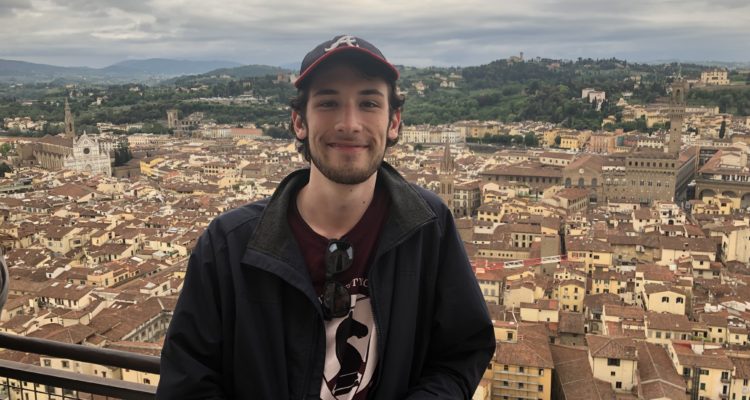By Wynn McDonald
It’s a “life-changing” experience. It’s a “once-in-a-lifetime” opportunity. It’s the scariest, most rewarding plunge of your life. You’re young, so why not give it a shot?
These are all phrases I’ve heard tossed around, casually as can be, about studying abroad. If you’re a Bellarmine student, you’ve probably seen the signs advertising the Office for Study Abroad and International Studies (OSAIL)’s open doors: “explore the world, start within.”
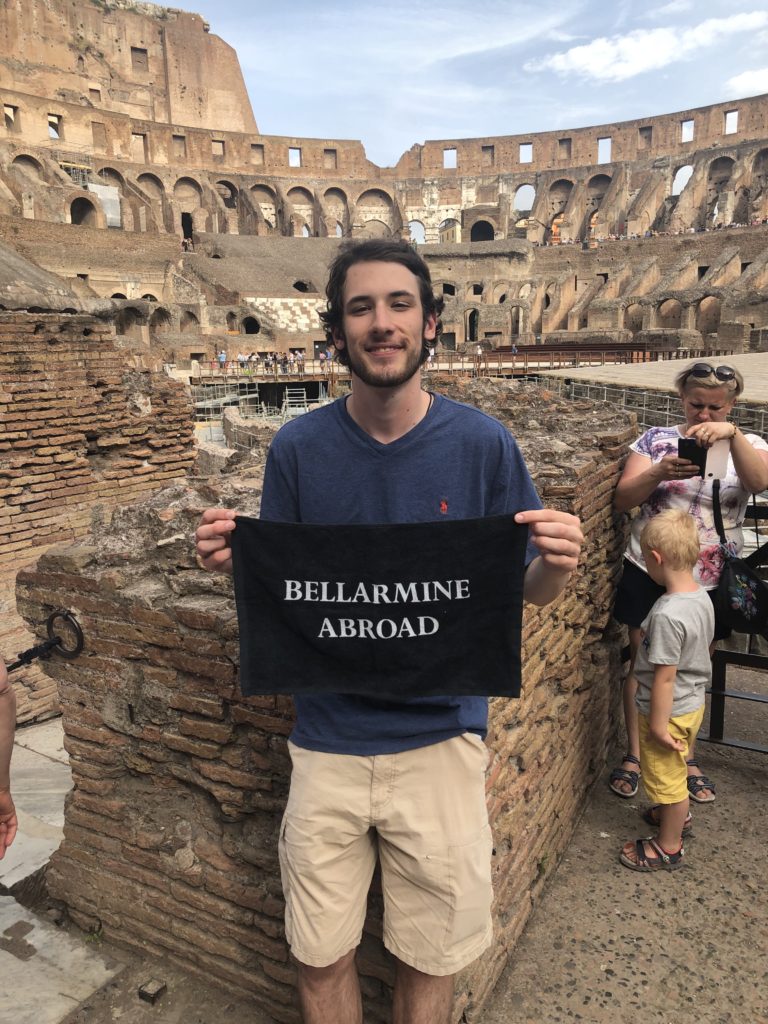
I couldn’t wait to show off my school pride at the Colosseum in Rome.
So, I set off to find out for myself just what all the hype was about.
Last fall, I applied to go on a one-month study abroad trip to Italy in the summer of 2019. I had never set foot out of the country before, and I had a barely recognizable grasp of the Italian language, but I made the commitment to take this terrifying leap into nearly total independence. Could I land on my feet? Could it possibly live up to these expectations?
“The goals are for our Bellarmine students to step outside of their comfort zone, to embrace difference, to see other cultures through a very personal lens,” said Dr. Gabriele Bosley, the executive director of the OSAIL and the primary point of contact for everyone who goes through the process.
“We meet our students where they are,” she said, “and then hopefully take them somewhere where they often have only dreamed they could go.”
My own experience of preparation was a stressful one, but it could have been much worse. I was fortunate to receive just enough scholarship aid to make my summer in the Tuscan sun a reality.
In addition to one-on-one advising, Bosley and the OSAIL are committed to providing financial assistance to every student who is accepted to a semester exchange, summer, or winter program through their office. Thanks to Bellarmine’s tuition exchange policy, full semesters abroad are completely covered by the university’s regular costs of attendance—so students are only on the hook for personal expenses and airfare, and even that is assisted by the OSAIL’s scholarship fund.
I knew early on that the long-term commitment was not for me, but the summer program—organized through KIIS, the Kentucky Institute for International Studies—offered the perfect middle ground to meet my interests. The classes were taught in English, and the students and faculty came from different universities around the state, which provided a familiar current as I dove into a new setting.
Before I knew it, I was flying across the Atlantic. I didn’t know it at the time, but as I sat through that miserable eight-hour plane ride (complete with a screaming infant and my sinuses in shambles), I was already forming new friendships that would make that month the best of my life.
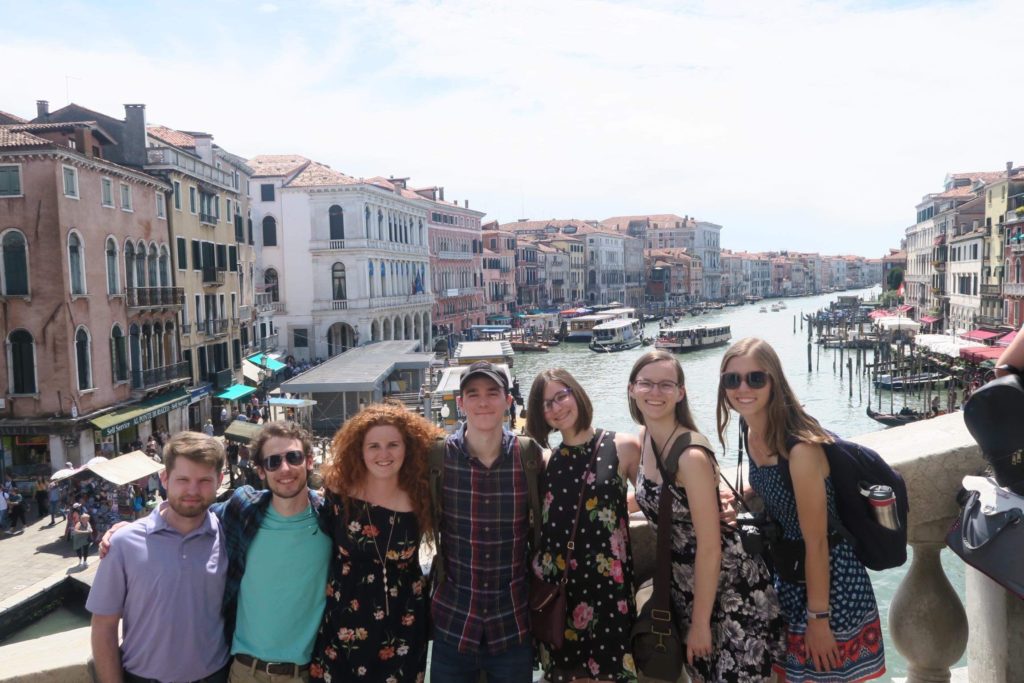
My friends and I crossed the Grand Canal in Venice.
Bosley emphasized the significance of personal development abroad as a result of the unique academic experience it represents. I quickly came to discover what she meant.
In Italy, my “classes” were unlike anything I ever experienced in America. Instead of classroom lectures, we learned about art history by actually walking through the streets of Florence—the same streets Michelangelo trod 500 years ago—and touring world-famous museums like the Uffizi to see his work in person.
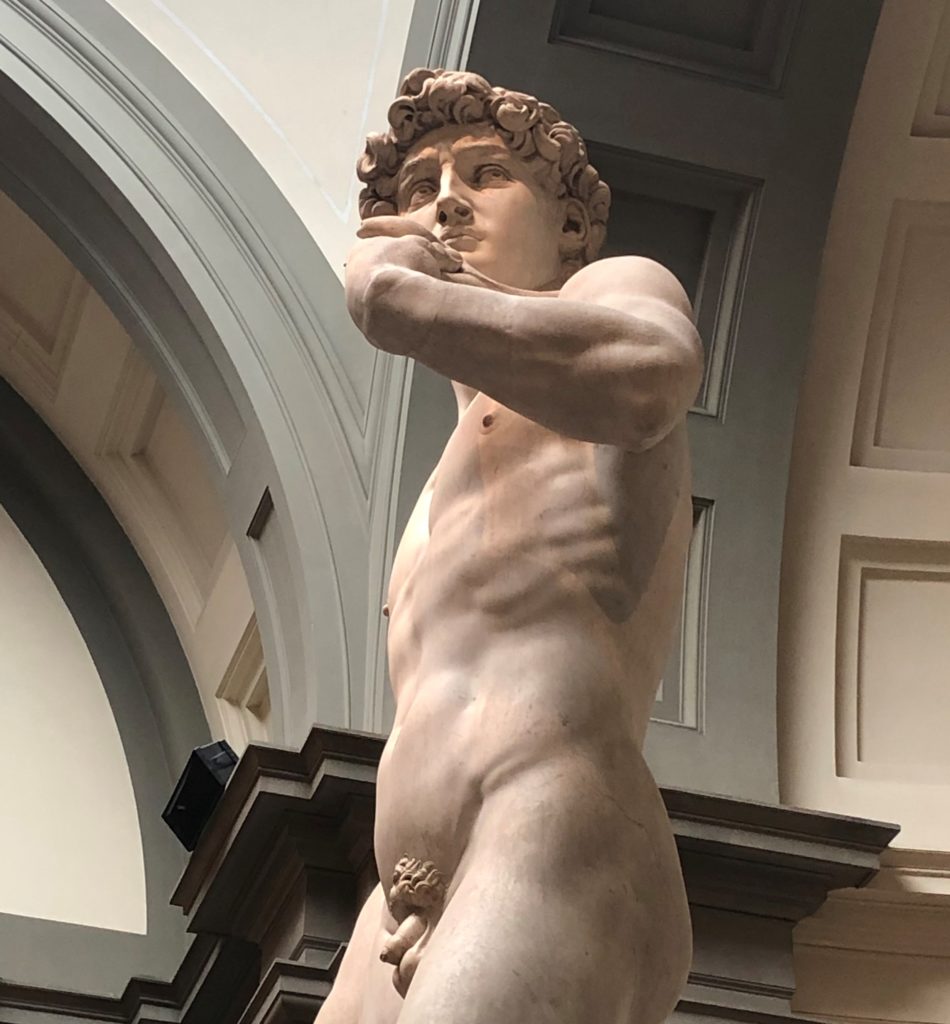
My classes featured a series of museum visits, including a trip to see Michelangelo’s David at the Galleria dell’Accademia in Florence.
“It gives you a greater perspective on the world,” said Vesna Alac, an Italian language lecturer and the coordinator of Bellarmine’s Cultures in Motion program, which gives students returning from study abroad a chance to share their stories at local schools. “You never tap into all the possibilities when you’re just in one place.”
In addition to this hands-on opportunity, my time in Italy taught me a great deal about my own ability to adapt amid unfamiliar surroundings. I found that many of the most memorable moments occurred outside of the program’s regular schedule, when I could go out into the community, shoot the breeze, and experience the culture at my own pace.
Looking back, all those worn-out epithets I heard about the wonders of studying abroad weren’t entirely wrong—but they fall far short of summarizing the authentic experience because the value depends on the individual.
In other words? You get what you put into studying abroad.
I can confidently say that my experience changed me for the better, opening new horizons for me both internally and externally. However, none of it would have been possible without an immersive leap of faith.
The experience is a bit like skydiving, said sophomore Evan Sims, who spent a month with KIIS in Spain this summer and stayed with a Spanish-speaking host family.
“It is very scary the first few days, but once you get through that… it’s so much fun,” Sims said. “It does take that first step, but [then] your parachute goes off and you can just take in the scenery.”
Bosley, who has been running the OSAIL since it was founded in 1995, said that it’s “always so gratifying” to see students return from their trips with newfound personal and cultural awareness.
After crossing the ocean for the first time in my life (and coming back in one piece), I feel pretty grateful as well. I know that there’s no good way to describe the study abroad experience; sooner or later, you just have to pull the ripcord and see for yourself.
Trust me, you won’t regret it.
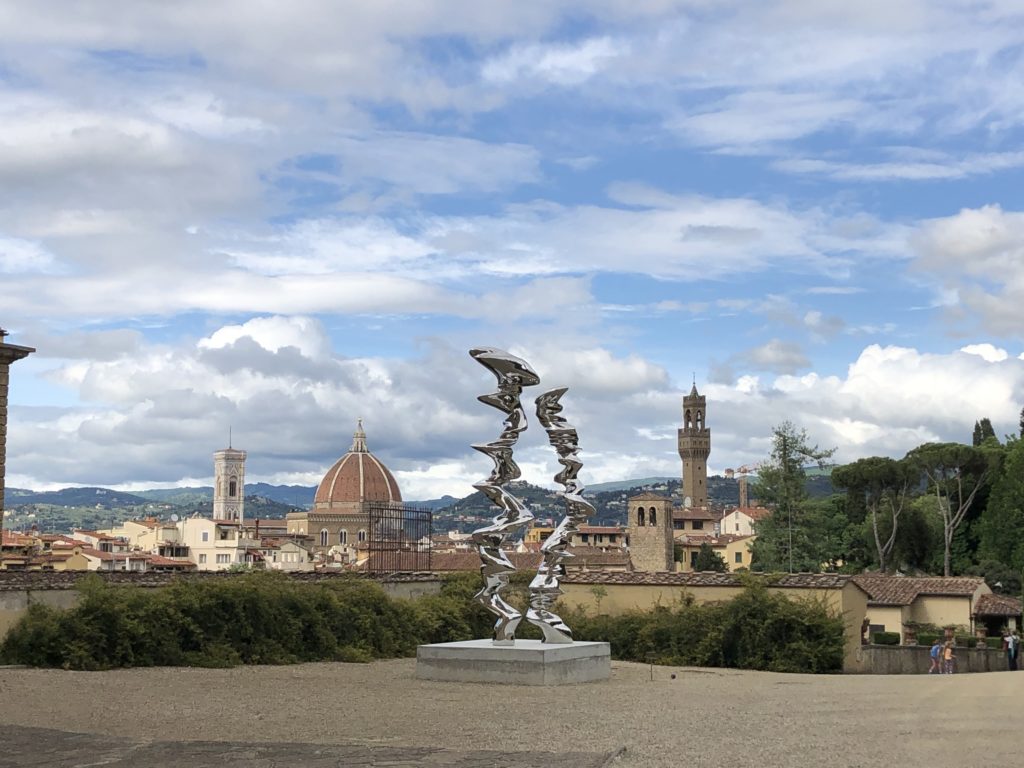
I found Florence, Italy, beautiful.

